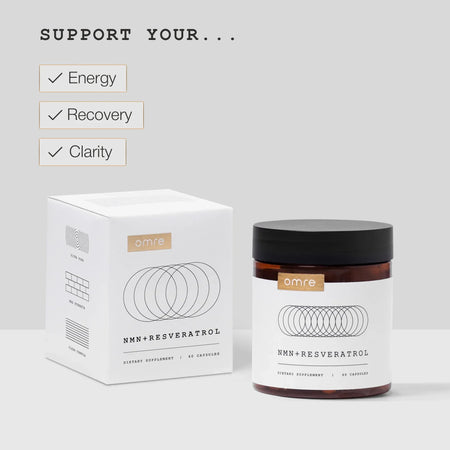NAD levels, or nicotinamide adenine dinucleotide levels, are crucial indicators of cellular health and metabolism in the human body. NAD is a coenzyme found in all living cells, playing a significant role in energy production, DNA repair, and regulating various biological processes. With the growing interest in longevity and health optimization, understanding NAD levels can provide insights into overall well-being and aging.
What are NAD levels?
NAD levels refer to the concentration of nicotinamide adenine dinucleotide within cells. This coenzyme exists in two forms: NAD+ (the oxidized form) and NADH (the reduced form). NAD+ is essential for various metabolic reactions, including the conversion of food into energy and the functioning of the mitochondria, the powerhouse of the cell. Healthy NAD levels are associated with optimal cellular function, while low levels can lead to a decline in energy production and increased susceptibility to age-related diseases.
Why are NAD levels important?
Maintaining adequate NAD levels is vital for several reasons:
- Energy Metabolism: NAD+ plays a critical role in the metabolic pathways that convert carbohydrates, fats, and proteins into energy. It acts as a carrier of electrons in the electron transport chain, which is essential for ATP production.
- DNA Repair: NAD is involved in the activation of enzymes known as sirtuins, which are crucial for DNA repair and maintenance. Higher NAD levels can enhance the body's ability to fix cellular damage, thus potentially slowing down the aging process.
- Cellular Signaling: NAD+ is involved in various signaling pathways that regulate cellular health, stress responses, and inflammation. This makes it significant in combating chronic diseases and age-related conditions.
How do NAD levels change with age?
As individuals age, NAD levels naturally decline. This reduction can lead to decreased energy production, impaired DNA repair mechanisms, and increased oxidative stress. Research suggests that maintaining or boosting NAD levels may counteract some of these age-related declines, thus promoting longevity and health in older adults.
How to measure NAD levels?
Measuring NAD levels typically involves blood tests or tissue biopsies, which can provide insights into the concentration of NAD+ and NADH in the body. However, these tests are often conducted in research settings rather than routine clinical practice. Emerging technologies may provide more accessible and less invasive methods for assessing NAD levels in the future.
Ways to boost NAD levels
There are several lifestyle and dietary approaches to naturally enhance NAD levels:
- Dietary Sources: Foods rich in niacin (vitamin B3), such as meat, fish, eggs, and green vegetables, can help increase NAD levels. Other compounds, like tryptophan, can also be converted into NAD in the body.
- Exercise: Regular physical activity has been shown to promote the production of NAD+. Exercise stimulates the activity of sirtuins, which rely on NAD+ for function.
- Caloric Restriction: Some studies suggest that caloric restriction may increase NAD levels and extend lifespan in certain organisms. However, this approach should be undertaken with caution and ideally under professional supervision.
- NAD Precursors: Supplements like nicotinamide riboside (NR) and nicotinamide mononucleotide (NMN) are popular for their potential to boost NAD levels. Research indicates that these precursors can effectively increase NAD+ levels in humans.
Potential health benefits of increased NAD levels
Boosting NAD levels may offer several health benefits, including:
- Enhanced Energy Levels: Higher NAD levels can improve mitochondrial function, leading to increased energy production and reduced fatigue.
- Improved Cognition: Some studies suggest that enhanced NAD levels may support cognitive function and protect against neurodegenerative diseases.
- Better Metabolic Health: NAD+ plays a role in regulating metabolism, and higher levels may help in weight management and reducing the risk of metabolic syndrome.
- Longevity: Research on model organisms indicates that NAD+ may play a role in extending lifespan and improving healthspan, though more studies are needed in humans.
Conclusion
Understanding NAD levels provides valuable insights into cellular health and aging. Maintaining optimal NAD levels is essential for energy metabolism, DNA repair, and overall well-being. By adopting a healthy lifestyle, including a balanced diet, regular exercise, and possibly supplementing with NAD precursors, individuals can support their NAD levels and potentially enhance their health and longevity. As research continues to evolve, the importance of NAD in health and aging will likely become even more pronounced, making it an exciting area of study for the future.
Stay Sharp, Stay Energized, Stay Ahead
Aging doesn’t have to slow you down. NMN + Resveratrol is your key to sustained energy, sharper focus, and long-term vitality. Whether you're a high performer pushing boundaries, a biohacker optimizing every aspect of life, or a parent looking to keep up with the demands of daily life, this powerful combination fuels your body at the cellular level.
Backed by science and trusted by those who refuse to settle for average aging, NMN + Resveratrol helps you stay ahead—today, tomorrow, and for years to come.
Experience the benefits for yourself. Start your journey to better aging now!
Try NMN + Resveratrol Today!
NMN + RESVERATROL
Cellular NAD+ booster with ultra‑pure NMN and Resveratrol, at research‑backed doses.*
Read more:


